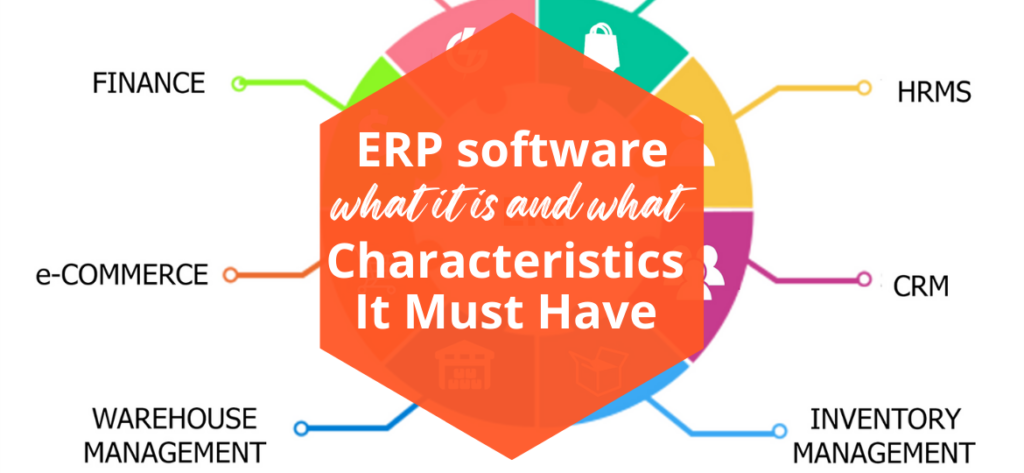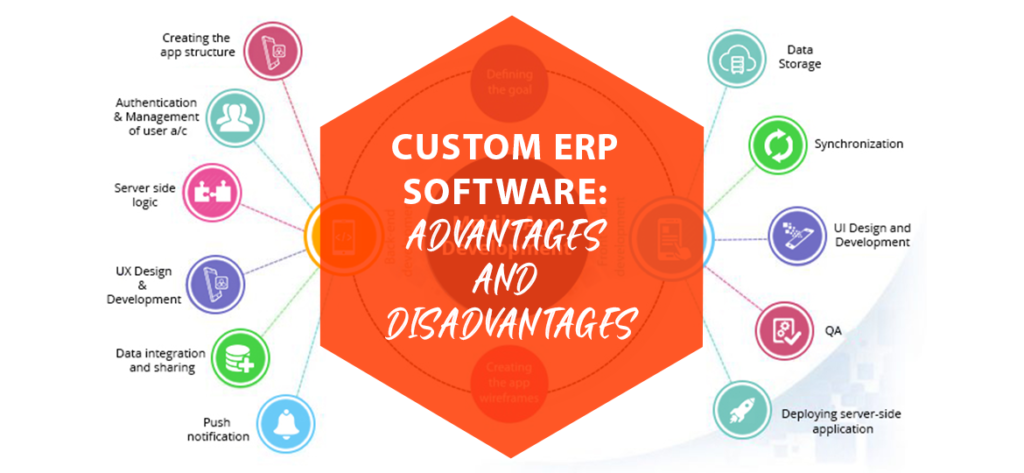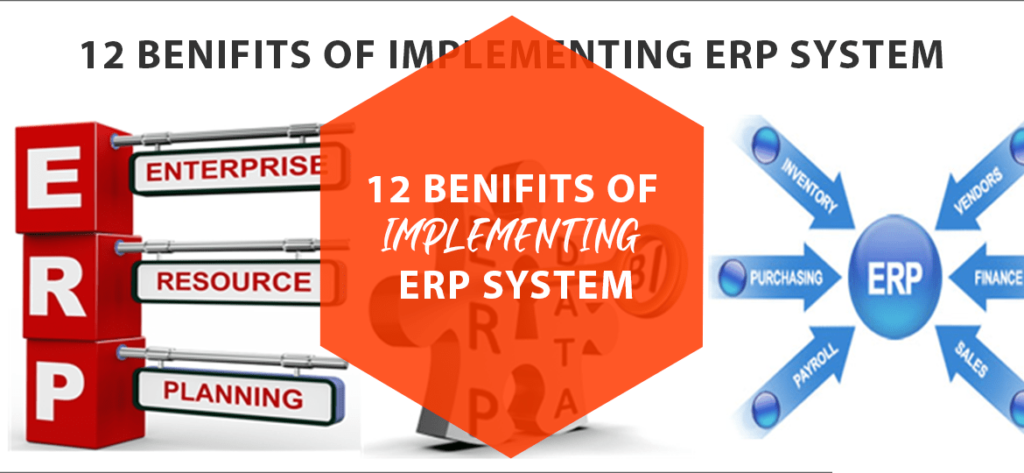ERP or management software are essential applications for managing companies, and the information flows of the various departments. Let’s learn more about what they are and what characteristics they must have to perform their function in the best possible way.
What is ERP software?
We do not turn too many words immediately saying that ERP software is a management application that can help you manage the activities of a company.
ERP (Enterprise Resource Planning) indicates a set of programs and software modules. It supports the information management of all company resources and areas in an integrated way. From a technical point of view, one of an ERP suite’s fundamental characteristics is that it is based on a single and integrated platform. It allows unified management of business processes and related data flows.
To provide you with a more detailed definition and an in-depth analysis of the definition, we refer you to the one provided by Wikipedia on ERP Software.
However, as far as the information we can provide you, an ERP can have various functionalities. These can be inserted or expanded according to specific needs and the characteristics of the software you choose.
How does this work?
The common element is storage, a database that distributes metadata, the information identifying the contents of documents, to tables. The goal of ERP system selectors is to save time and resources and obtain immediate benefits both at the strategic level and in the synergy of ongoing projects. ERP helps system managers make decisions and understand where to intervene to make things better.
What is an ERP system for?
From the inventory to the final services, the ERP system acts as a glue, as mentioned, and relates to the various actors involved, from internal to suppliers, suggesting the most suitable from time to time.
The inventory is an attractive front of the application, which is revolutionized through unique dashboards and control panels. It is designed to start from some established criteria. Earlier, there was talk of “suite,” the backbone of the ERP system divided into modules. After that, presents the range of activities that each section must carry out.
Benefits of ERP System
The benefits of an ERP system are numerous. It allows you to expand your own skills market. Your administration can have a significant update with minimal effort for sporadic code additions. Whether it is a multinational or an SME, streamlining will frown upon by both head office managers and area coordinators. They will notice that ERP is helping in standardize day-to-day operations.
The benefit of AI integration makes staff instantly ready for the incredible. For example, HR will be able to identify problems before they arise, based on the trend described by the ERP system. It allows to literally scan all employee initiatives and track them according to shared metrics. It will be done through suitable interfaces as well as giving everyone greater satisfaction in achieving deliverables.
Similarly, employers will have precise feedback on what has been done in their plants. And, by making repetitive processes especially automatic, there would be more space to devote to other tasks. The innovative system allows an overview of economic movements anywhere in the second instance. Besides, it helps you to observe the maintenance of established standards. The modularity that characterizes the ERP system lends itself to its gradual adoption.
Following are the advantages of an ERP system:
- distributes workloads;
- Simplify the business machine;
- It enables the approval of new opportunities;
- It offers updated statistics on the dynamics in progress;
- Avoid double copies, sharing the same reports with everyone;
- Moreover, it suggests the procedures to follow the latest data;
- Intertwines different skills;
- It allows significant time savings;
- Further, it contributes to a pleasant and collaborative atmosphere.
Characteristics of an ERP system
To be able to adapt to the needs of a company fully, an ERP system must have 5 fundamental characteristics. Following are the specific characteristics of an ERP system.
-
ERP software and Uniqueness of information.
By this term, we mean the fact that all the different operations and elaborations of the various modules of the system share one and only one “value” for each piece of information. It means, e.g., that the “customer code” is the same whether the system is recording a sales order, whether it is issuing an invoice or launching a batch into production. Hence, you can gain Uniqueness of the information by creating a single central database on which the diverse software modules can operate.
-
ERP software and process approach
“Departmental” systems for specific functional areas of the company refer to the process of an office, the strategies used by its members, etc. It means an information system for administration must design to provide functionalities linked, for instance, to accounting (archiving of commercial documents and tax practices, etc.). Implicitly, the company’s vision is that of a strictly functional structure. The efficiency of each office requires a well-defined separation of tasks and activities and, therefore, of data and information.
So, the design of an ERP system is based on identifying critical processes and their computerization.
-
ERP software: a transaction method
It is essential to focus on the processes that “run” the entire organization from an organizational point of view in ERP systems. This context is sometimes called a “transaction”: every major business “event” (accounting or operational) produces a “transaction” that you can instantly record. And it has a contextual effect on all parts of the included ERP database. For example, entering a new order by a customer triggers a database update in all aspects of this processing activity.
-
ERP software, copyright
Adopting an ERP system requires the conformation of business practices to a preconfigured management process model. This is defined as prescriptiveness: consider, for example, the activity of receiving ordered materials from a supplier. Let’s suppose that the ERP system records the receipt of the goods and prints the related documentation, draws on a database where it retrieves the order’s data to the supplier. In this case, the reception process is prescribed by the ERP in the sense that, e.g., it will not be possible to conclude the good’s receipt of the order to the supplier has not been previously and correctly registered in the system.
On the one hand, this prescriptiveness can be useful, but on the other hand, it can also be a source of problems.
-
ERP Prescription useful
Useful ERP systems (especially the more advanced ones) have been designed based on examples of information flows and processes of “successful” large companies.
Therefore, implementing an ERP can allow a company to standardize its practices to the “best practices” of its sector of belonging.
-
ERP problems related to prescriptiveness
Source of problems as this adaptation of the organization to the “best practices” imposed by the ERP may not be easy. For example, we recall how a car company could have difficulty managing production emergencies set by a just-in-time flow that sometimes requires urgent arrivals of components not yet formalized in terms of orders.
-
Problem resolution
Parameters of modern ERP software systems help to solve the problem. They are configurable in a very complex way by acting on some configuration parameters. It allows a better adaptation of the system to the essential practices of the individual company.
Conclusions on ERP Software and best adaptable solution
The ERP software that Team Memories offers to its customers represents a unique thread in the company’s evolution. It is highly flexible and characterized by highly functional coverage extended to all company areas. It helps obtain maximum control and perfect integration between processes. Besides, it increases productivity and supports the company in an increasingly competitive market. Feel free to contact us. Our ERP Development Company will provide perfect enterprise solutions to make you succeed.



